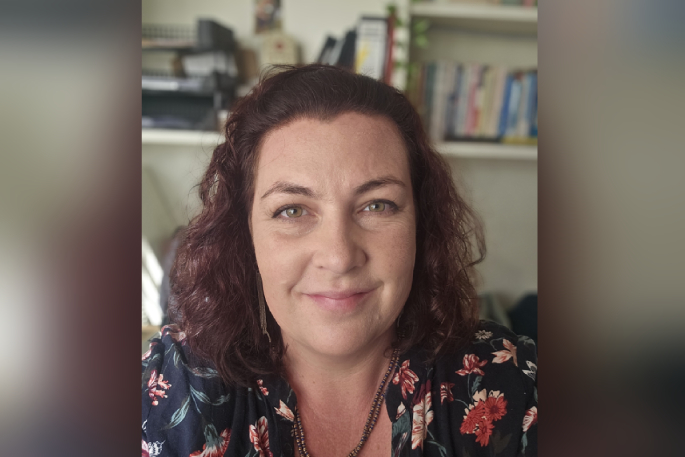New Zealanders with eczema are caught in a relentless pursuit of relief from the life restricting physical symptoms, leading to frustration and a diminished quality of life, a new survey has found.
The survey of 517 adults with eczema and 98 parents and carers is the largest survey on the lived experience of New Zealanders and was commissioned by the Eczema Association of New Zealand and AbbVie.
The physical symptoms of eczema like itchiness, raw, sensitive skin causing pain, discomfort and loss of sleep have a debilitating effect, with 51 per cent of adults reporting that eczema has a moderate-to-significant negative impact on their day-to-day life.
Almost all adult respondents (97 per cent) cited the negative mental health impact of eczema, with almost half (46 per cent) reporting it to be significant or very significant. Low self-esteem (79 per cent), stress (68 per cent) and anxiety (59 per cent) were common challenges experienced by adults.
Eczema Association of New Zealand spokesperson Vanessa Jenkins says she hopes these findings will prompt a wider level of public understanding, and compassion, for eczema patients.
“Eczema is often described as a hidden disease. But it has a very real physical, emotional, economic, and social toll on patients and their families.
“These data reveal the daily struggle for tens of thousands of Kiwis suffering from eczema. It’s a life characterised by pain, sleepless nights, personal and social anxiety, a deep sense of helplessness and loss-of-confidence from never being on top of the condition.”
Of those surveyed, 70 per cent report their or their loved one’s eczema is not fully manageable or under control and this increases to 79 per cent per cent for adults with moderate-to-severe eczema.
Three quarters of adults surveyed say they are not able to bring an eczema flare-up under control with available treatments. On average patients try at least five different treatment options, and one in five people have tried more than 20 different treatments.
“Eczema patients face a depressing cycle of hope and despair. Hope with the initial promise of a new treatment, followed by despair when it stops working. It’s a cycle repeated many times over for New Zealanders with eczema,” says Vanessa.
The survey found that 62 per cent feel a sense of hopelessness given the number of treatments tried and doctors seen, while 84 per cent feel frustrated by their inability to find an effective, long-term treatment.
“Once contact allergic dermatitis and specific alternative diagnoses have been excluded, then as there is no cure for eczema, the main goals in managing the disease are to reduce itch, minimise rash, and limit the impact on quality of life," says NZ Dermatology and Skin Cancer Centre dermatologist Dr Scott Barker.
Eczema is the most common chronic inflammatory skin disease.
In New Zealand approximately 212,000 adults and 193,000 children live with this recurring and non-contagious skin condition.
About 20-40 per cent of children diagnosed with eczema will continue to be affected as adults and live with the condition for most of their life. It is also more prevalent among Māori and Pasifika children compared with European/Pākehā children.
More than half of the adult respondents (55per cent) have lived with eczema for more than 20 years. Seventy per cent say their eczema has a negative impact on relationships with friends while 62 per cent report negative impact on relationships with their spouse or partner.
Eczema impacts people’s ability to participate in employment and is associated with sick leave, changing jobs, and receiving benefits or pensions.
The symptoms people experience can impact the use of their body that may be required for certain occupations, while the loss of sleep at night can make it difficult to concentrate at work.
Four in five (80 per cent) adults say eczema has a negative impact on their ability to work, and 68% feel it impacts their ability to fulfil work and career ambitions.
“This survey shows the impact of eczema on a patient’s quality of life, and their families, is profound and life changing," says AbbVie New Zealand head Bronwen Marshall.
“When you consider the lost time in the workplace, the impact at a country level is also significant. We estimate the productivity loss from workplace absences due to eczema to be up to $299 million each year in New Zealand.
“We’re proud to be partnering with the Eczema Association of New Zealand to help raise awareness of eczema and its toll on New Zealanders. Our hope is that improved public understanding of the disease helps to inform better support for eczema patients.”
Despite the significant impact eczema has on the lives of New Zealanders, people face challenges in accessing care and treatment.
Waitlists for public dermatology services are long and cost can be a barrier for some accessing private dermatology services. C
urrently, there are also no reimbursed advanced treatment options for people with moderate-to-severe eczema in New Zealand.
The Eczema Association of New Zealand and AbbVie will be hosting a roundtable of medical, government and academic experts to discuss the findings of the survey and options to improve access to timely and effective care, particularly for those who live with moderate and severe eczema.



0 comments
Leave a Comment
You must be logged in to make a comment.